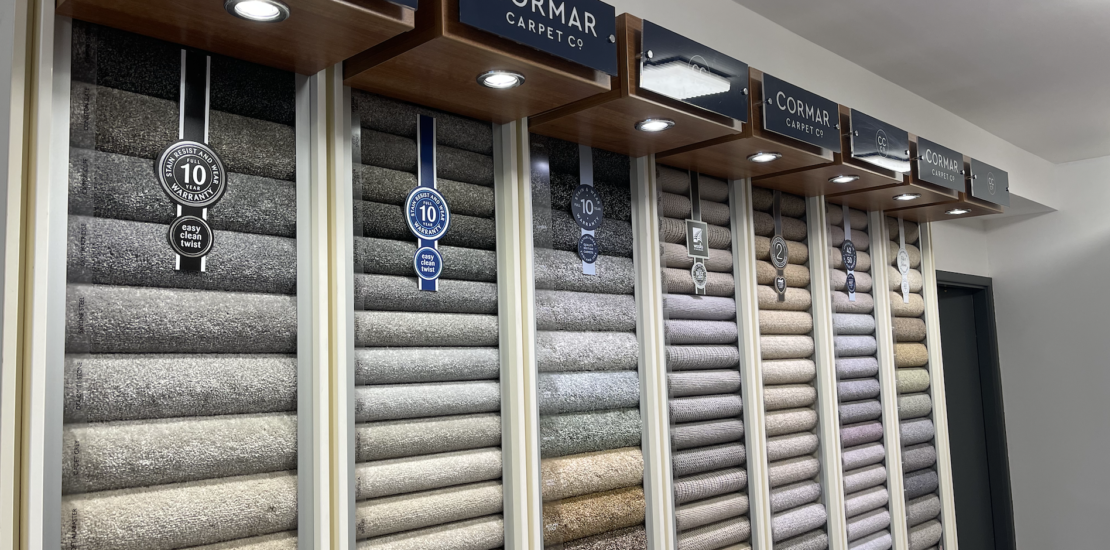- 05/04/2023
- Posted by: melissa@beaniemedia.com
- Category: Uncategorized

The UK has a long history of carpet manufacturing that goes back several centuries. Carpets have been associated with luxury, comfort, and prestige throughout history, and the UK has been one of the world’s leading producers of high-quality carpets. The country has a unique heritage of carpet-making, with different regions specializing in various types of carpets. In this article, we will delve into the history of carpet manufacturing in the UK, from its origins to the present day.
The history of carpet making in the UK can be traced back to the 16th century when Flemish weavers migrated to England and brought the art of weaving fine carpets with them. They settled in the town of Wilton, in East Anglia, which soon became the centre of the carpet industry in England. By the 17th century, Wilton had become the hub of the UK’s carpet manufacturing industry.
In the early years of carpet manufacturing in the UK, carpets were entirely made by hand. The weavers worked on large looms, and the process was extremely time-consuming and labour-intensive. Therefore, carpets were a luxury item that only the wealthy could afford. The raw material used was wool, which was readily available in the UK. The wool was sheared from sheep, cleaned, spun into yarn, and woven into carpets.
The 18th century saw a significant change in the UK’s carpet manufacturing industry with the invention of the power loom in 1785 by Edmund Cartwright. The power loom revolutionized the industry, making the process faster and more efficient. This allowed for the mass production of carpets, making them more affordable for the general public. With the introduction of the power loom, the carpet manufacturing industry boomed, and many new carpet factories were established across the UK.
One of the most significant developments in the UK’s carpet industry occurred in the early 19th century when Axminster carpets were first produced. Axminster carpets are a type of woven carpet that is made using a unique weaving process that allows for intricate patterns and designs to be woven into the carpet. The carpets were named after the town of Axminster in Devon, where they were first produced. Axminster carpets quickly became popular across the UK, and they are still in high demand today.
The 19th century also saw the introduction of new materials into the UK’s carpet industry. Synthetic fibres such as nylon, polyester, and acrylic were developed, and they soon became popular materials for carpet manufacturing. These fibres were cheaper and more durable than wool, making carpets even more affordable for the general public. The use of synthetic fibres also allowed for more variety in carpet designs and colours.
By the 20th century, the UK’s carpet industry had become a significant contributor to the country’s economy. Many new carpet factories were established across the UK, providing employment for thousands of people. Carpet manufacturing had become a highly specialized industry, with different regions of the country specializing in different types of carpets. For example, Wilton continued to be known for its high-quality woollen carpets, while Kidderminster became famous for its woven carpets.
In the latter half of the 20th century, the UK’s carpet industry faced increasing competition from overseas. Countries such as India, China, and Turkey began producing carpets at lower prices, making it difficult for UK manufacturers to compete. As a result, many UK carpet factories closed down, and the industry began to decline.
Despite the challenges faced by the UK’s carpet industry, it has continued to thrive in recent years. The industry has adapted to changing consumer trends, with a greater emphasis on sustainability and eco-friendliness. Many UK carpet manufacturers now use recycled materials in their carpets, and they have also introduced new technologies such as water-jet looms and digital printing. As a result, the UK’s carpet industry is as robust and vibrant as ever.
For a fantastic choice of carpets in Huddersfield, please visit our Lindley showroom
